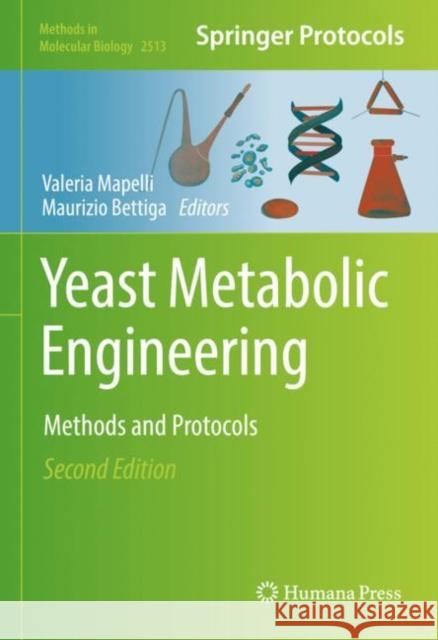Yeast Metabolic Engineering: Methods and Protocols » książka
topmenu
Yeast Metabolic Engineering: Methods and Protocols
ISBN-13: 9781071623985 / Angielski / Twarda / 2022
Yeast Metabolic Engineering: Methods and Protocols
ISBN-13: 9781071623985 / Angielski / Twarda / 2022
cena 883,53
(netto: 841,46 VAT: 5%)
Najniższa cena z 30 dni: 848,19
(netto: 841,46 VAT: 5%)
Najniższa cena z 30 dni: 848,19
Termin realizacji zamówienia:
ok. 22 dni roboczych.
ok. 22 dni roboczych.
Darmowa dostawa!
This second edition volume expands on the previous edition with new and updated chapters on the latest developments in the study of yeast within the biotechnology field. The chapters in this book cover topics such as transformation protocols for genetic engineering of Saccaromyces cerevisiae and Komagataella spp.; an overview of selection markers, promoters, and strains used for metabolic engineering of S. cerevisiae, P. pastoris, and Z. bailii; the use of yeast in CRISPR/Cas9 technology; tools to study metabolic pathway in Yarrowia lypolitica; and a discussion on the “universal expression system” that is applied in a broad spectrum of fungal species. Written in the highly successful Methods in Molecular Biology series format, chapters include introductions to their respective topics, lists of the necessary materials and reagents, step-by-step, readily reproducible laboratory protocols, and tips on troubleshooting and avoiding known pitfalls.
Cutting-edge and authoritative, Yeast Metabolic Engineering: Methods and Protocols, Second Edition is a valuable resource for researchers and scientists interested in learning more about this important and developing field.











